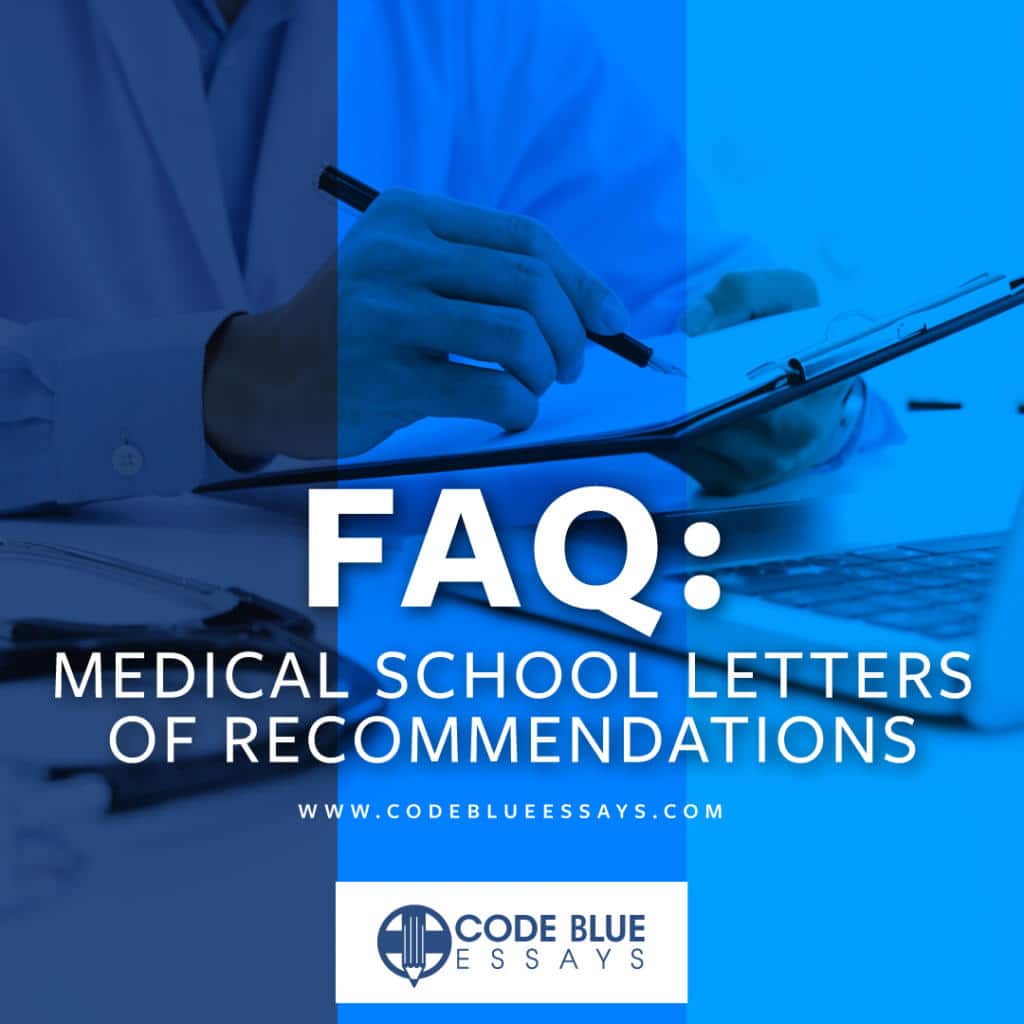FAQ: Medical School Letters of Recommendation
0 Comments

Letters of recommendation are an effective and important part of the medical school application. They are usually submitted with your AMCAS application and come from a professor at an academic institution or someone who works with you in extracurriculars. Letters of recommendation provide a professional’s opinion of you, aside from your own claims or opinion of yourself that a friend or relative might have of you.
They give a summary of your unique skills and can have a big impact on admissions committees. A great letter gives the admissions committee insight into the person and student you are and the doctor you may become. Some people even say that they can be more powerful than a personal statement, since they are not biased.
Let’s discuss a few frequently asked questions about Letters of Recommendation, and how they can make a positive impact on your medical school application…
In most cases schools will request a minimum of three commendations: two from science professors and one from another professor or extracurricular supervisor. Competitive applicants send as many as 4-6 letters of recommendations though from people such as clinical mentors, research advisors and other professors. While it might be tempting to get a letter from a respected, recognizable name, it’s more important to choose someone who is close to you, who knows you well and thinks highly of you. A letter from someone you’ve only had a few interactions with won’t be as effective. Choose someone that can speak about your strengths on a deep level.
It’s never too early to start thinking about who to ask to write you a letter of recommendation. Think ahead and make a point to build stronger relationships with your professors. If you already have someone in mind, ask them toward the end of the semester or your time working together. Don’t wait months or years to ask them. You want to be on their mind so they can write a letter that is fresh and full of enthusiasm. And even when you have identified a few people to ask, be sure to have a backup plan or have plenty of time to ask someone else in case a letter falls through.
You can ask your professor or person virtually or in-person, but either way be sure to email them a follow-up. In this email, personalize your request with a summary of your relationship, involvement in their class/organization, what you enjoyed/learned and how they inspire you. Provide all of the materials they might need to write the letter, and be sure to give them plenty of time to write it. Ask at least 2-3 months ahead of time and provide a clear deadline and directions for submitting your letter. It will also help to provide them with a copy of your CV or resume, personal statement and anything else that will help them write about your specific character traits and goals. Be sure to let them know which medical schools you are applying to and why. ‘
Your letter writers can submit their letter electronically through AMCAS Letter Writer Application or Interfolio. You will not submit or review your letters of recommendation. This is why you need to provide each author with the submission information which includes your AAMC ID and a unique seven-digit Letter ID. Each writer will be assigned a Letter ID when you add them to your application, which they will need in order to upload your letter. Letters submitted will be received immediately with AMCAS and within three days with Interfolio. If you have not seen the letter marked close to the deadline, follow up with your letter writer and ask them to submit it again.
When it comes to asking for a letter of recommendation, avoid these mistakes:
If someone is hesitant when you ask them to write a letter for you, it is likely that they do not know you well enough or feel comfortable writing about you and your experience or relationship. That’s why it’s important to have more letters planned than the minimum requirement.
And don’t forget to write your letter writers a thank you note once your application is submitted. Send them a card and update them when you are accepted to medical school.
Medical School Applications open May 30th, so it’s not too early to look ahead and begin assembling your application!
The medical school application process is complex, time-sensitive, and highly competitive. Errors or delays in your application can have a very negative impact on your chances for interviews and acceptances. Therefore, it is essential to be prepared and organized throughout the application process.
Med School Mogul is our free program that simplifies the medical school application process and allows you to easily stay organized throughout your application cycle.
Med School Mogul includes insider tips, a range of invaluable resources, and interactive tools for:
Sign up to access our FREE Med School Mogul Program today!